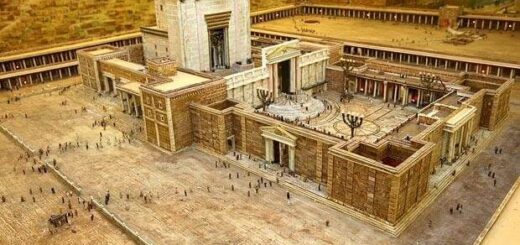The ‘Excellent Exemplar’

Getting your Trinity Audio player ready...
|
Many accolades have been conferred upon the Prophet Muḥammad (peace and blessings be upon him). Where as previous Prophets were sent to their own respective nations, he (peace and blessings be upon him) was sent as a mercy to all of mankind. He (peace and blessings be upon him) was the last and final messenger, the seal of all Prophethood. In the final revelation that he (peace and blessings be upon him) has brought, we learn that he was granted things that no previous Prophet was.
In chapter thirty-three of the glorious Qur’ān we are told that the Prophet Muḥammad (peace and blessings be upon him) is the ‘excellent exemplar’, the ‘uswatun ḥasana.’
But what are the precise details that relate to holding this designated title? Does this differ in any way to the title that was also given to the Prophet Ibrāhim (peace be upon him)? It is known that the Prophet Muḥammad (peace and blessings be upon him) undertook certain acts that were unique to him as a Prophet; how does this relate to him being the ‘uswatun ḥasana?’
To address these questions and examine this topic, which is of the highest importance, we have translated chapter 7 from Part 2 (The Nature of Revelation) of Kitāb al-Tawḥeed, by Professor Muḥammad bin Abdallah al-Massari.
In this chapter, Professor al-Massari addresses these questions and provides a lucid analysis of what is precisely meant by the designation of being the ‘uswatun ḥasana’.
The Excellent Exemplar
In chapter thirty-three of the glorious Qur’ān, Allah the Exalted furnishes us with the following indisputable statement. He says:
لَّقَدْ كَانَ لَكُمْ فِي رَسُولِ اللَّهِ أُسْوَةٌ حَسَنَةٌ لِّمَن كَانَ يَرْجُو اللَّهَ وَالْيَوْمَ الْآخِرَ وَذَكَرَ اللَّهَ كَثِيرًا
The Messenger of Allah is an excellent exemplar for those of you who put your hope in Allah and the Last Day and remember Him often.[1]
As demonstrated unequivocally in the verse, the Prophet peace and blessings be upon him has been described as the ‘ustwatun ḥasana’, the most perfect and complete exemplar. This absolute general statement has been made without any limitation or qualification. However, in relation to the leader of all pious people, Ibrāhim the friend of Allah peace be upon him, Allah has said:
قَدْ كَانَتْ لَكُمْ أُسْوَةٌ حَسَنَةٌ فِي إِبْرَاهِيمَ وَالَّذِينَ مَعَهُ إِذْ قَالُوا لِقَوْمِهِمْ إِنَّا بُرَآءُ مِنكُمْ وَمِمَّا تَعْبُدُونَ مِن دُونِ اللَّهِ كَفَرْنَا بِكُمْ وَبَدَا بَيْنَنَا وَبَيْنَكُمُ الْعَدَاوَةُ وَالْبَغْضَاءُ أَبَدًا حَتَّىٰ تُؤْمِنُوا بِاللَّهِ وَحْدَهُ إِلَّا قَوْلَ إِبْرَاهِيمَ لِأَبِيهِ لَأَسْتَغْفِرَنَّ لَكَ وَمَا أَمْلِكُ لَكَ مِنَ اللَّهِ مِن شَيْءٍ رَّبَّنَا عَلَيْكَ تَوَكَّلْنَا وَإِلَيْكَ أَنَبْنَا وَإِلَيْكَ الْمَصِيرُ
You have a good example in Abraham and his companions, when they said to their people, ‘We disown you and what you worship besides Allah! We renounce you! Until you believe in Allah alone, the enmity and hatred that has arisen between us will endure!’––except when Abraham said to his father, ‘I will pray for forgiveness for you though I cannot protect you from Allah’––[they prayed].[2]
Allah made him a ‘uswatun ḥasana’ only in the matter of allegiance since he was free and disassociated from his people who insisted on disbelief and were outspoken in their hostility towards him as demonstrated by them attempting to murder him. Though, Allah mentioned an acceptable excuse for him for asking forgiveness for his father. He also praised him for ceasing to ask forgiveness – after the excuse ceased to exist. Allah, whose names are blessed, says:
وَمَا كَانَ اسْتِغْفَارُ إِبْرَاهِيمَ لِأَبِيهِ إِلَّا عَن مَّوْعِدَةٍ وَعَدَهَا إِيَّاهُ فَلَمَّا تَبَيَّنَ لَهُ أَنَّهُ عَدُوٌّ لِّلَّهِ تَبَرَّأَ مِنْهُ إِنَّ إِبْرَاهِيمَ لَأَوَّاهٌ حَلِيمٌ
Abraham asked forgiveness for his father because he had made a promise to him, but once he realised that his father was an enemy of Allah, he washed his hands of him. Abraham was tender-hearted and forbearing.[3]
Yet Allah made an exception from the good example and leadership of Ibrāhim peace be upon him, which is his asking forgiveness for his father, though he was intending only the good and was excused in doing that. By Allah, Ibrāhim peace be upon him did not commit an impermissible deed or a sin. He just did only the less desirable with a good intention and while being dutiful to his father. He asked forgiveness because it was originally permitted and allowed to be done. At that time, he was not ordered otherwise but he abandoned it when Allah prohibited it explicitly.
In contradistinction to the matter of Ibrāhim peace be upon him, it was never mentioned in the Qur’ān that the leader of Prophets and the master of all sent messengers, the nearest one to the Lord of the worlds, Muḥammad ibn Abdullah peace and blessings be upon him was excluded from being taken as an example to be necessarily guided. This fact when considered with evidences that following his example is Allah’s command, necessarily proves that he is the good and infallible example in all his words and deeds with no exception whatsoever. The verses mentioned above provide a compelling evidential basis when taken together, summarised as follows:
- I only follow what is revealed to me [6: 50, 10: 15, 46: 9]
- The Messenger of Allah is an excellent exemplar for those of you who put your hope in Allah and the Last Day [33: 21]
- Say, ‘If you love Allah follow me, and Allah will love you and forgive you your sins; Allah is most forgiving, most merciful.’ Say, ‘Obey Allah and the Messenger,’ but if they turn away, [know that] Allah does not love the disbelievers. [3: 31/32]
Considering these evidences together we can necessarily conclude that the Prophet’s deeds are an infallible revelation that can be considered an excellent example without any qualification or limitation.
Another key principle that can be outlined from what has been presented thus far: whatever the Prophet (peace be upon him) did after revelation began can never be prohibited for the rest of his Ummah, unless it has been categorically proven that it relates only to what is specifically legislated for him. Hence his acts can be emulated and followed without fear or hardship. Yet performing mere acts does not make them obligatory or even desirable, except by virtue of clear evidence to that effect. It is inconceivable that the Prophet peace and blessings be upon him could have performed an undesirable act unless there was a material evidence to show that he performed it only to prove that no one who performs it would be committing something unlawful outright. Though abstaining from performing such a deed would be better. This is partly one of the requirements of being designated as ustwatun ḥasana. Likewise, abstinence from a certain act would provide striking proof that this deed is not obligatory on the Ummah. Besides, there should be evidence to support the prohibition, the undesirability, or just the permissibility of a deed. It is inconceivable that the Prophet (peace be upon him) would cease to perform a desirable deed, unless he had an evidence showing that he just ceased to perform it to prove that it is not a questionable matter, so as not to burden his Ummah, or for any other reasons that will be discussed in due course.
Again, these are some of the requirements of being designated as ‘ustwatun ḥasana.’ It is impossible for the Prophet peace and blessings be upon him to perform a deed which is prohibited for his Ummah or to leave what is obligatory for his Ummah. Although it is possible that he may perform something that is of a different category than the former, such as abandoning a desirable deed or performing a disliked deed. This would be a ‘sin’ for want of a better word between himself and Allah, though it is most definitely not a sin when performed by a member of his Ummah.
Endnotes
[1] Qur’ān 33: 21
[2] Qur’ān 60: 4
[3] Qur’ān 9: 114

